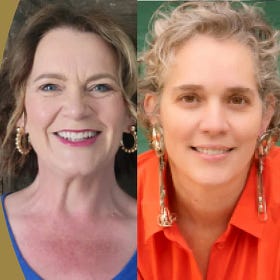Is it okay to work for change in the church?
Is there a faithful way to push for change in an institution one believes is divinely guided? What does it means to belong to a Church that values both institutional authority and ongoing revelation?
At Faith Matters, we take inspiration from D&C 58:26-28:
“For behold, it is not meet that I should command in all things …Verily I say, men should be anxiously engaged in a good cause, and do many things of their own free will, and bring to pass much righteousness; For the power is in them, wherein they are agents unto themselves.”
We are also inspired by Elder BH Roberts’ admonition to us all to take part in the ongoing Restoration:
I believe ‘Mormonism’ affords opportunity…for thoughtful disciples who will not be content with merely repeating some of its truths, but will develop its truths …The Prophet planted the germ-truths of the great dispensation of the fullness of times…The disciples of Mormonism, growing discontented with the necessarily primitive methods which have hitherto prevailed in sustaining the doctrine, will yet take profounder and broader views of the great doctrines committed to the church; and, departing from mere repetition, will cast them in new formulas…until they help to give to the truths received a more forceful expression, and carry it beyond the earlier and cruder stages of its development. (B.H. Roberts, The Improvement Era, 1906)
Here are a few thoughtful conversations on how change happens in the Church, what the role of ordinary members might be, and if there are deeply faithful ways to work for change:
Tim Chaves shares his thoughts in an essay called “Is it ok to try to fix the Church?”:
Is it ok to try to fix the Church?
We can carry the church beyond its “cruder stages of development.” Though it won’t happen all at once, we can be — in the words of one of my favorite LDS thinkers — “faithful provocateurs” who directly or indirectly recast the Church more fully in the image of the God we believe in; one who is no respecter of persons, prejudices, or past; one whose love is unlimited and extends to enfold each of his children.
Patrick Mason shares his thoughts (inspired by Laurel Thatcher Ulrich) in “Imagining a Four-Stage Church”:
Patrick Mason: Imagining a Four-Stage Church
“In some ways, you've got to create the church that you want to be a part of, while also participating in a larger Church as well… I think that's really important for everybody to kind of own their own membership and their own space within the church. But the flip side of that, the other side of the coin is, it's not just your church. It's their church, too. So I don't want it to be the Church of Patrick Mason. It's the Church of Jesus Christ of Latter-day Saints. So it's Jesus Christ’s Church first and foremost, but then also all of the Latter-day Saints. I'm just one of them. … Again, it's about tension, it's about paradox, both creating space for yourself, but also creating space for other people.”
Lisa Olsen Tait and Scott Hales, two of the author-historians behind Saints, share examples from Church History in “Our Beautiful, Messy, Unfolding Story”:
Lisa Olsen Tait & Scott Hales: Our Beautiful, Messy, Unfolding Story
In this conversation, Lisa and Scott share powerful stories of ordinary members navigating pivotal moments. From Black Latter-day Saints who held onto hope during the painful years before 1978 to those who quietly and actively worked for change, these stories offer a vision of discipleship that embraced courage, resilience, creativity, and deep faith—a model that feels especially relevant today.
This conversation was a beautiful reminder that each of us is part of a rich, unfolding history—a history that connects us to generations of Saints who faced their own challenges and whose courage and faithfulness have blessed us today. We hope it inspires you to see your own place in this story.
Learn from the example of Elder Marion D. Hanks in our conversation with his son:
McArthur Krishna shares her perspective alongside Michal Thomas in “The Cherished Doctrine of Heavenly Mother” and alongside Anne Pimental in “Changemakers”:
McArthur Krishna and Michal Thomas: The Cherished Doctrine of Heavenly Mother
"There's activism like you're reaching out to steady the arc, and we all know that didn't end well, right? But there's also activism to say, "Hey, I got a good idea, and I can see that this good idea would bless people."
So for instance, the Relief Society, the Young Women, and the Primary all came because a woman had a good idea. And then she went to the Church and said, "Hey, I got a good idea, I think we should do this." And the Church said, "Hey, that's a good idea." Right? ... I 100% agree that the prophet and the twelve have stewardship in this. But it doesn't mean that all good ideas only come from that place. ... I really believe in an "and" world. This is not an either/or. Right? This is not a challenge to authority. This is not a rabble rousing. This is saying I'm contributing. And if I have a good idea that I can contribute, then it behooves me to contribute."
McAthur Krishna & Anne Pimental: Changemakers
We’re really excited to share a conversation about a brand-new Children’s book called Changemakers by McArthur Krishna and Anne Pimentel, with beautiful artwork by Jessica Sarah Beach. The book is a powerful and much-needed affirmation, especially in a moment when many women are quietly wondering where they fit. Through stories from scripture and the global history of the Church of Jesus Christ of Latter-day Saints, it highlights women whose ideas, faith, and courage have helped shape the church in meaningful and lasting ways.
In this conversation, we explore what it means to be a changemaker in a church that values both institutional authority and ongoing revelation. McArthur and Anne remind us that revelation doesn’t always start at the top—so often, it often rises from the margins, born of questions, connection, and listening with love. We hope this conversation inspires you to trust your gifts, to share your voice, and to believe, deeply, that your contributions matter.
Terryl Givens shares insights from the life of Eugene England in “When Conscience and Authority Seem to Collide”:
When Conscience and Authority Seem to Collide — The Life of Eugene England
“I think we have to be willing to risk in expressing authentically what we take to be the truths that we know and feel are true. Having said that, it's also the fact that we do not inhabit a democracy [in the Church.] And I think that's what's so frustrating; we want to import democratic principles and values into our life in the Church. I think we have to recognize that there are very limited ways in which we can make our influence felt. … Two things that I've tried to find consolation in: One is that all politics is local; so is all religion. There's virtually no limit to the influence you can have in your ward just by the way you treat people. And second is that there have been effective ways that thoughtful people have made their influence felt in the church. And I think Lester Bush is a prime example of this. His path was scholarship. He said, I'm not going to argue about whether the priesthood ban is right. I'm going to excavate it and find out what's there. And it changed the church.”
And George Handley shares insights from the life of Lowell Bennion in “Integrity and Institutions”
George Handley on Lowell Bennion: Integrity and Institutions
Lowell Bennion was both committed to intellectual integrity and to prioritizing people over ideas. In the interview, George walked us through how this dual commitment led Lowell to a heart-led vocation that refused to compartmentalize the gospel—to separate it from either intellectual inquiry or from the practical, everyday needs of society. It also allowed Bennion to navigate the tricky, bumpy moments in relationship with other thinkers and educators in the Church with love and integrity.
When can advocacy cross a line?
Consider this talk by Ahmad Corbitt:









